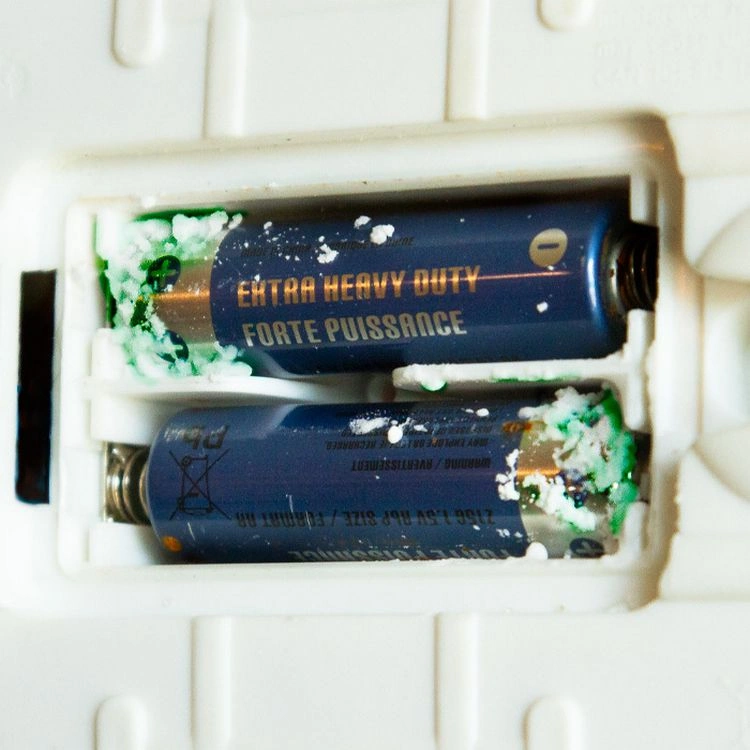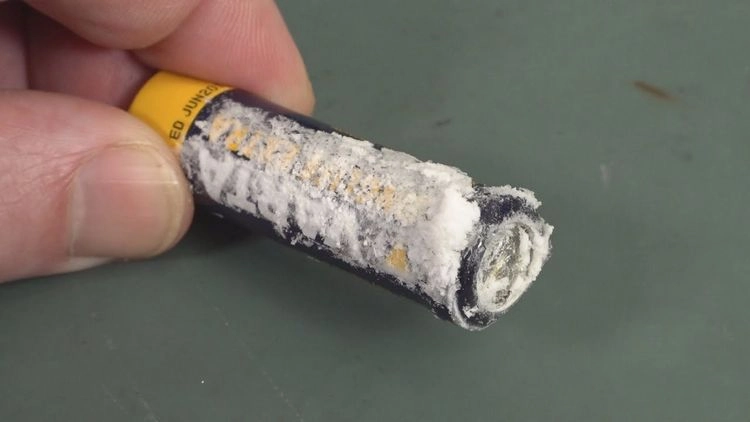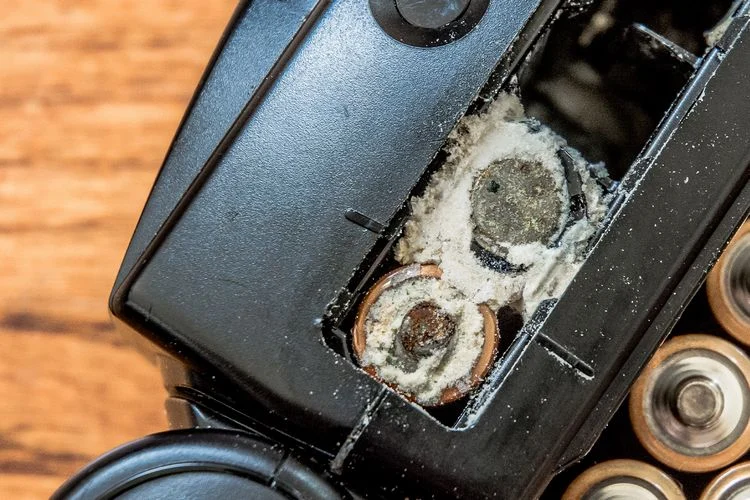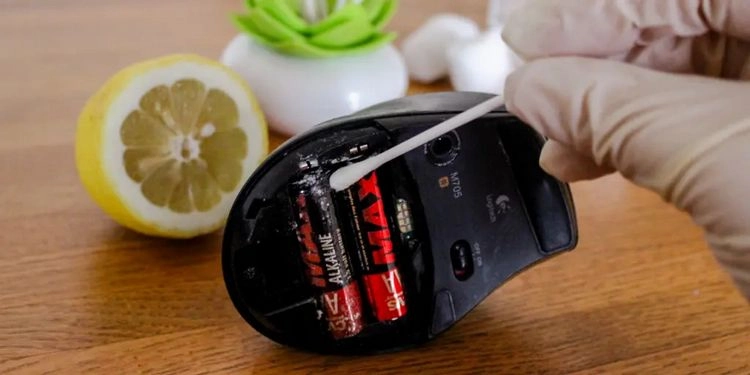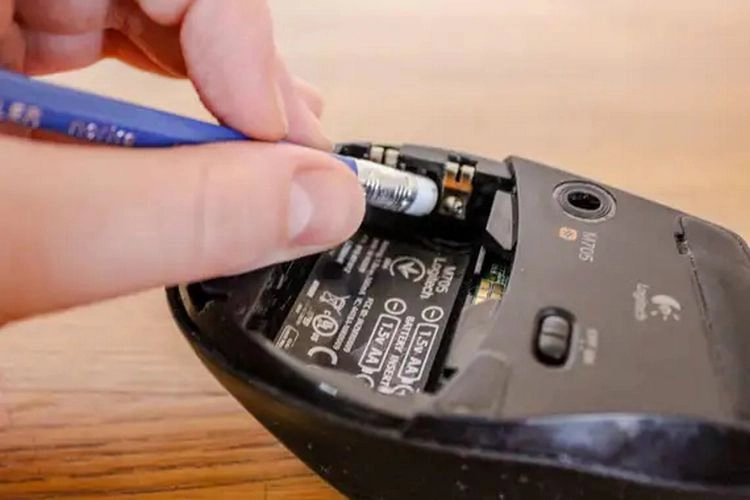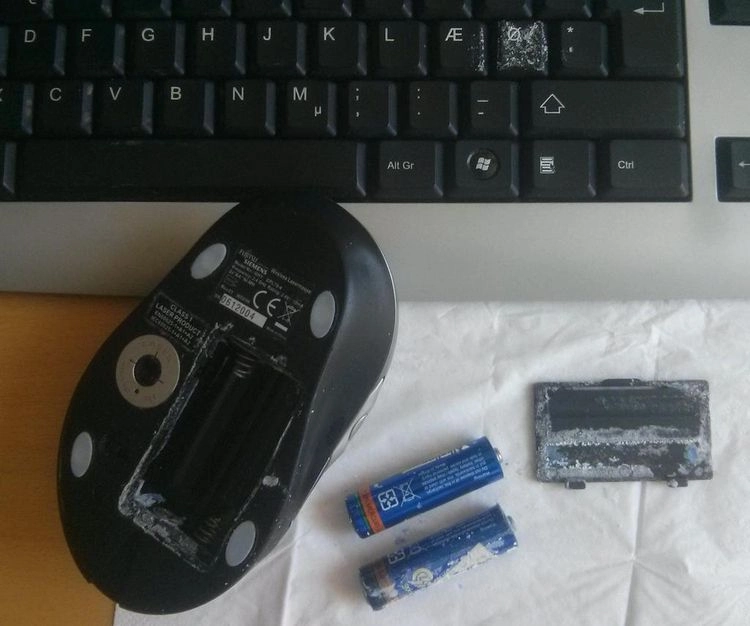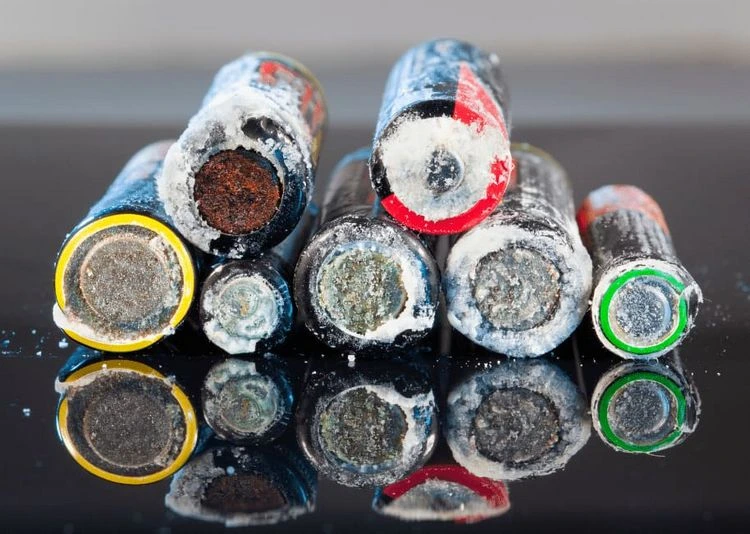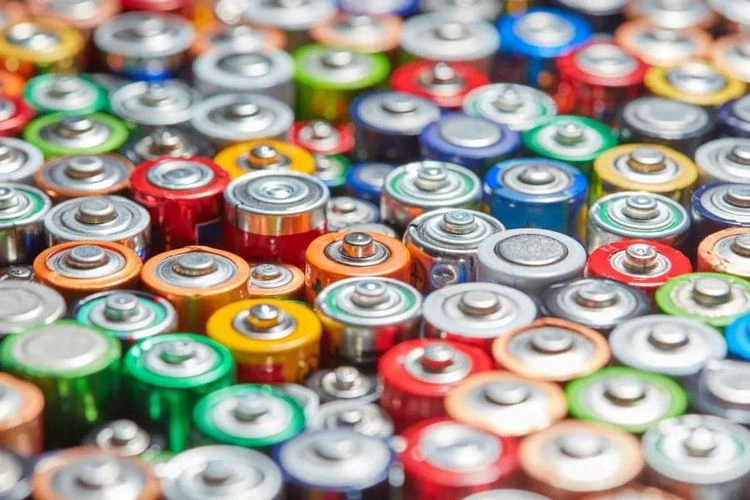When exposed to moisture or heat, even the best batteries can corrode and leak chemicals. But don’t worry – each of you can clean a leaking battery! It’s lightning fast.
You’ve probably had the unpleasant experience of opening the battery compartment on a device with removable batteries, such as a remote control, flashlight, cordless mouse, electric pepper grinder, or child’s toy, and finding a whitish, crusty mass. Find out what to do in this situation below!
Are Leaking Batteries Harmful?
Leaking battery acid is very corrosive – it can cause severe burns, soil contamination and destroy any electronic equipment it comes in contact with. This acid is actually alkaline due to its chemical composition of potassium hydroxide. Sulfuric acid is the harmful residue left by lead-acid batteries.
How to Clean a Leaking Battery – Tips
Discharge from batteries is not only corrosive but also very annoying. It can cause irreparable damage if it comes in contact with your skin or eyes. Wearing protective goggles and cloth or synthetic rubber gloves can help prevent dried battery discharge from getting in your eyes and on your hands while cleaning. Wearing long sleeves is a good idea as an extra safety measure. Leaking batteries are corrosive and should not be touched to avoid chemical burns. Prepare protective equipment before attempting to clean a device that has had a battery leak.
Clean a Leaking Battery with Home Remedies – Vinegar and Rubbing Alcohol
These materials and home remedies are needed to clean oxidized contacts:
- lemon juice or white vinegar
- rubbing alcohol
- Cotton swab, pencil eraser or microfiber cloth
- plastic bag
- compressed air spray
After you turn off the device, use a cotton swab to dab some vinegar or lemon juice on the damaged area. The discharge should begin to bubble and break away from its white, crusted state.
Note the following: Removing corrosion from car batteries requires a special tool. Before you do it yourself, you should contact a professional, because these batteries are much larger and more difficult to work with.
Then rub in some rubbing alcohol: the cleaning power of isopropyl alcohol is twice as strong. Without leaving any moisture, it dissolves the residues of other cleaning products (lemon juice or white vinegar in this example) that could stick on your devices. Rubbing alcohol is quick drying, effective and safe. Make sure the rubbing alcohol or antiseptic wipes you use contain the purest type of isopropyl alcohol you can find on the label. Some alcohol wipes often only contain 70% isopropyl alcohol, which is fine for cleaning the outside of plastic or metal, but isopropyl alcohol that is 90% to 99% pure is more effective.
Wipe the area with a microfiber cloth when you’re done cleaning. Smaller areas can be polished with a pencil eraser. To remove any remaining cotton fibers after using cotton swabs, use a compressed air spray for cleaning electronics as a final step.
Make sure the unit is completely dry, especially internal components such as the battery compartment, before replacing the battery and turning it on.
Clean Battery Contacts with Vinegar and Baking Soda
What you need:
- Cotton swabs or a used toothbrush
- citric acid or vinegar
- baking soda
Remove the batteries wearing gloves and dispose of them properly. After the batteries have been removed, the device must be cleaned from the corrosion. Put some vinegar or lemon juice on a cotton swab or toothbrush and use it to clean the area. The rust on the unit will be dissolved by the acid it contains. Remove as much corrosion as possible by scrubbing with the cotton swab or toothbrush.
Baking soda mixed with a very small amount of water can remove any remaining residue. Repeat the scrubbing process with a cotton swab or an old toothbrush. Use a damp cotton swab to remove any residue of baking soda (or other contaminants). Wait until the device is completely dry before replacing the batteries.
Dispose of Batteries Properly
The chemicals found in traditional home batteries pose a threat to groundwater and ecosystems if they are disposed of in landfills. That’s why you should dispose of batteries properly – collection points can be found in supermarkets, petrol stations, drugstores, etc.
When recycling corroded batteries, you should separate them from clean batteries by placing them in a plastic bag or other container.
Avoid Leaking Batteries
- Keep your batteries away from sources of intense heat or cold. Batteries don’t last longer when kept in the fridge. The life expectancy of the batteries decreases and they can leak if you do this.
- When using batteries, make sure they are compatible with the device. Also make sure they are the same brand if you need multiple batteries.
- Use an eraser to clean the device connectors and the surface of the new battery before inserting it. This ensures the best possible quality of interaction.
- The batteries should be removed before storing the device for a long period of time. This will prevent electrical equipment from being damaged if the batteries leak.
You can still use a device with a leaking battery, but it’s important that you know how to clean it! Now you are already informed.

